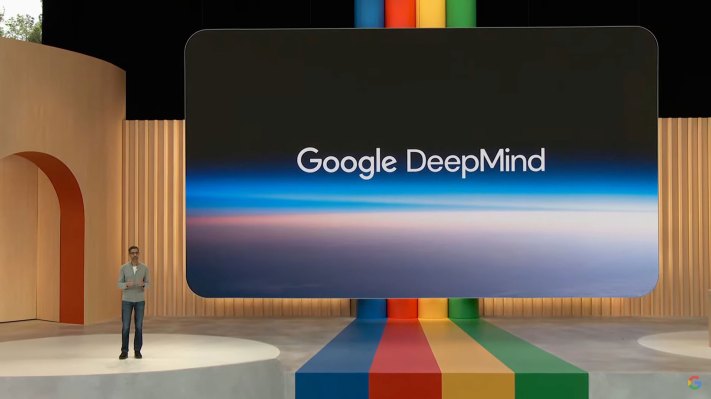ChatGPT might’ve captured the world’s attention. But DeepMind, the Google-owned research lab, claims that its next large language model will rival — or even best — OpenAI’s.
According to a piece in Wired, DeepMind is using techniques from AlphaGo, DeepMind’s AI system that was the first to defeat a professional human player at the board game Go, to make a ChatGPT-rivaling chatbot called Gemini.
If all goes according to plan, Gemini will have the ability to plan or solve problems as well as analyze text, DeepMind CEO Demis Hassabis told Wired’s Will Knight.
“At a high level you can think of Gemini as combining some of the strengths of AlphaGo-type systems with the amazing language capabilities of the large models,” Hassabis said. “We also have some new innovations that are going to be pretty interesting.”
Knight speculates that Gemini, which was briefly teased at Google’s I/O developer conference in May, will leverage innovations in reinforcement learning to accomplish tasks with which today’s language models struggle. Reinforcement learning involves “rewarding” an AI system for certain behaviors and/or punishing undesired ones, with the goal of “teaching” the system which behaviors to exhibit in a given situation.
As Knight notes, reinforcement learning has already led to gains in the language model space — it’s key to the way systems such as ChatGPT respond to prompts. DeepMind, having a wealth of experience in reinforcement learning (AlphaGo being one example), is no doubt eager to apply its learnings to the generative AI domain.
It’s worth noting that Gemini isn’t DeepMind’s first foray into language models. Last year the company introduced Sparrow, a chatbot that the lab claimed was less likely than other language models to give “unsafe” or “inappropriate” answers to questions. Hassabis told Time in January that DeepMind would consider releasing Sparrow for a private beta sometime this year; it’s unclear whether those plans are still on track.
Gemini is, however, DeepMind’s most ambitious work in the space so far, at least if early reports are to be believed. The Information reported in March that Gemini — which was spurred by the failures of Bard, Google’s chatbot project — to keep pace with ChatGPT, has direct participation from Google higher-ups, including Jeff Dean, the company’s most senior AI research executive.
The race for dominance in the generative AI space comes amid sky-high investor — and customer — enthusiasm. According to Grand View Research, the market for generative AI — including text-analyzing AI like Gemini — could reach $109.37 billion by 2030, an increase of 35.6% from 2030.
